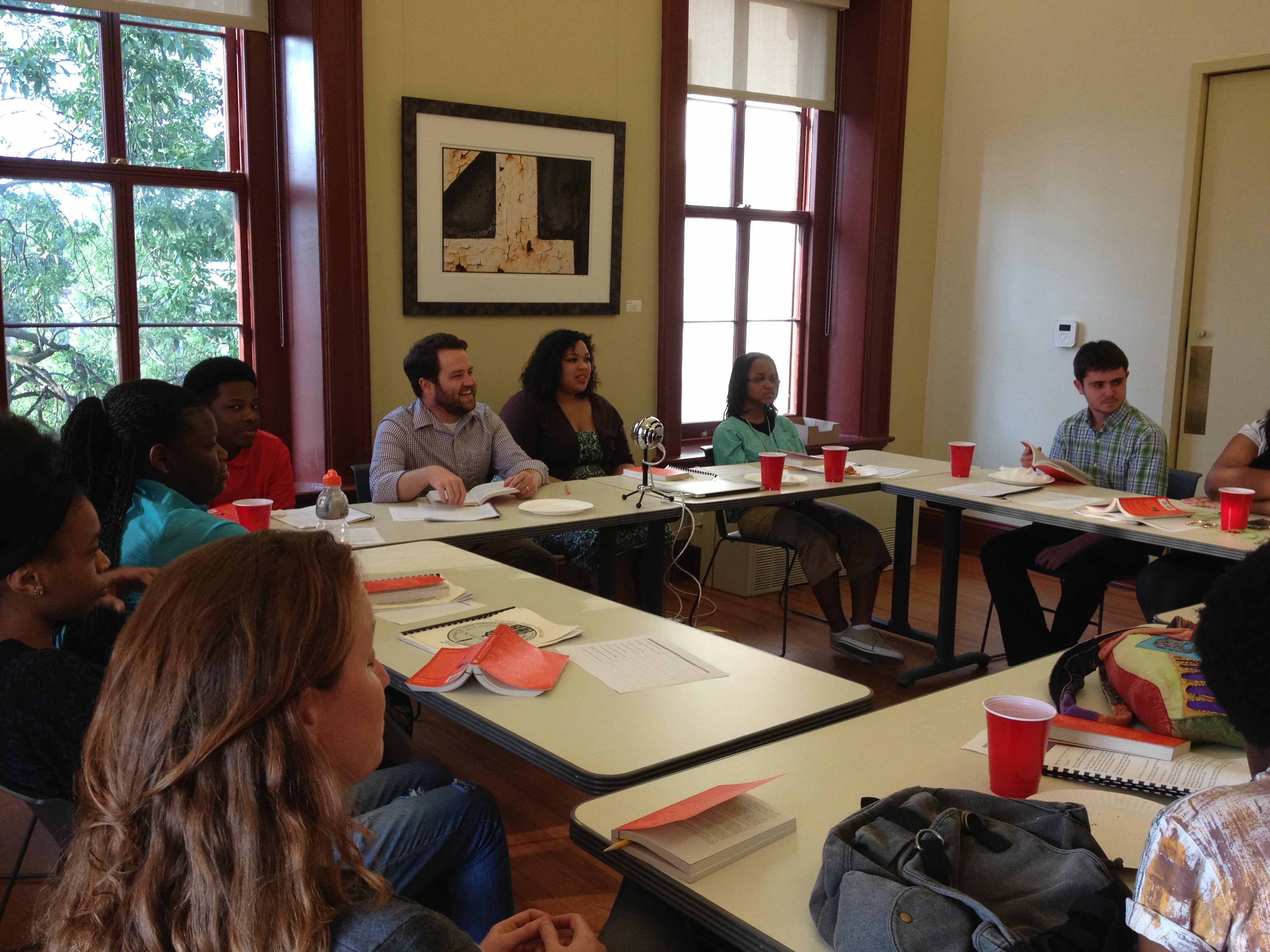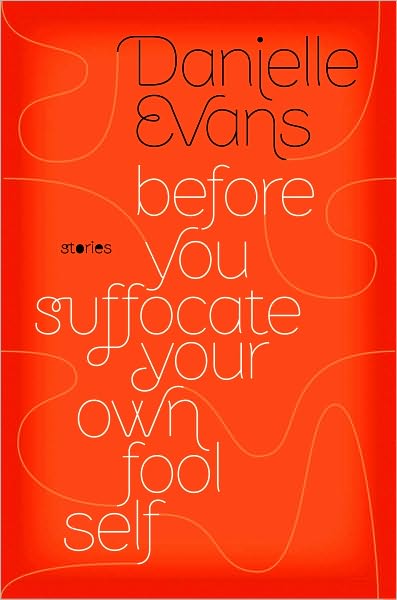
Last Tuesday over pizza and safe from the heavy humidity, we had a chance to meet Danielle Evans, author of the critically acclaimed short story collection, Before You Suffocate Your Own Fool Self. We discussed “King of a Vast Empire,” a story, which revolves around the survivor’s guilt that lingers after a deadly car crash involving two families with small children. We tackled the titular riddle of the story, which captures the challenging moral ambiguity at the heart of Evans’ stories. The riddle goes like this: a queen leaves her castle to meet her lover, dissatisfied with her ever-absent husband, “the king of a vast empire.” The castle’s guard allows her to pass the gates, and the queen is killed by robbers on the road who do not know who she is. The question posed in the story is: who is most responsible for the queen’s death? The absent king, the queen, the guard, or the robbers?
While Danielle Evans and the PEN/Faulkner staff chose simple, straight-forward ethics and unanimously pinned blame on the murderous robbers, the high schoolers played devil’s advocate, calling out the queen for her lack of common sense, the lover for not recommending the castle as a safer romantic venue, and the king for failing to satisfy his wife’s needs. Divided in their opinions, all that they could agree on was that the actual murderers were by no means the most responsible for the queen’s death. These puzzling moral dilemmas were the theme of the night.
While discussing the story “Snakes,” the conversation quickly turned to a debate about the story’s most troubling character—a sympathetic grandmother who is a cancer survivor, a widow, and a racist who is ashamed of her biracial granddaughter. Book club members were uncomfortable about their reactions to a character who simultaneously evoked their empathy and resentment. Some tried to resolve the disconnect between the grandmother’s good qualities and her racism by acknowledging that the she’d been raised during a time when segregation was the norm while others suggested that her racist comments were simply misleading projections of her resentment for her own (white) daughter who’d run off, leaving her daughter in the grandmother’s care.

Evans, struck by the group’s impulse to sanitize the character in order to pity her, acknowledged the anxiety that a label like “racist” creates today but emphasized the need to tackle grayer characters and more complicated forms of prejudice in literature. Book club members who seemed to expect an unequivocal affirmation of good or bad from the author were left with a perplexing and not entirely satisfying ambiguity. The heated session revealed that life and literature often pose troubling questions but present no clean or easy answers.
— Jack Nessman
